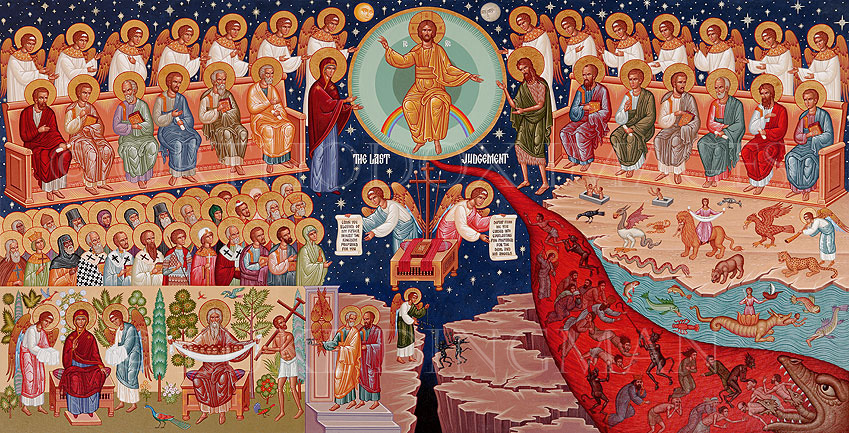On the same day, we commemorate
the Second Coming of our Lord Jesus Christ and His impartial
Judgment.
The most Divine Fathers placed this parable
after the first two (those of the Publican and Pharisee and of the Prodigal
Son), lest anyone, learning about Godís love for mankind in those parables,
should live carelessly, saying: God loves mankind, and when I cease from
sinning, I shall be ready to accomplish everything.
They set this fearful day here, in order to
instill fear, through death and the expectation of future torments, in those who
are heedless, and to bring them back to virtue, not trusting in Godís
loving-kindness alone, but taking into account that He is a just Judge, Who will
render unto each man according to his deeds.
Christís coming is called the Second Coming,
because whereas He first came to us in bodily form, quietly and without glory,
He will now come from Heaven with wonders that transcend nature, with
conspicuous radiance, and corporeally, so that He may be recognized by all as
being He Who first came and delivered the human race, and Who is going to judge
it, to see whether it has preserved what was given to it.
When His Coming will take place, no one knows;
for the Lord kept this hidden even from the Apostles.
It should be known that Christ will not be
looking at that time for fasting, bodily hardships, or miracles, good though
these things are, but for things that are far superior, namely, almsgiving and
compassion. To the righteous and the sinners He will speak of six virtues: ďFor
I was hungry, and ye gave Me food; I was thirsty, and ye gave Me drink; I was a
stranger, and ye took Me in; naked, and ye clothed Me; I was sick, and ye
visited Me; I was in prison, and ye came unto Me; for inasmuch as ye have done
it unto one of the least of these My brethren, ye have done it unto Me.Ē
Everyone can do these things according to his
own ability.
